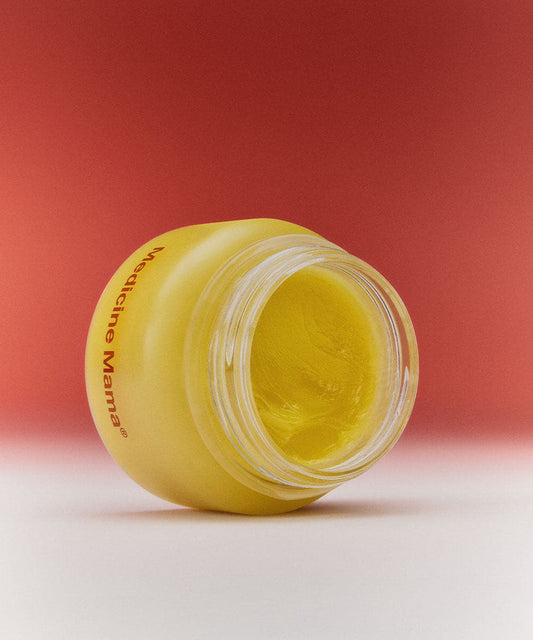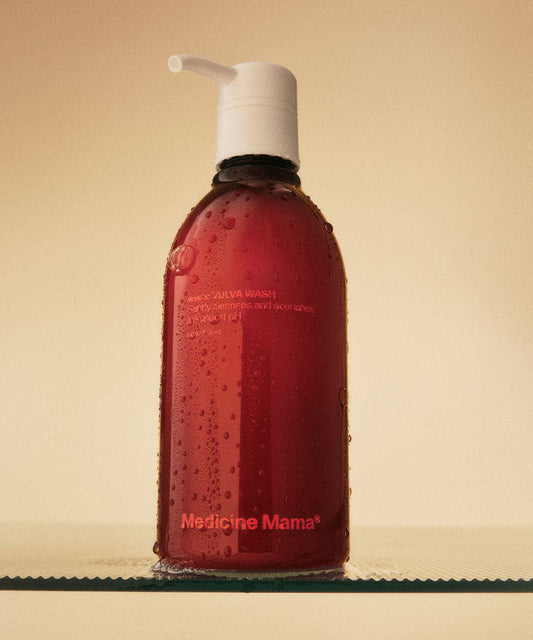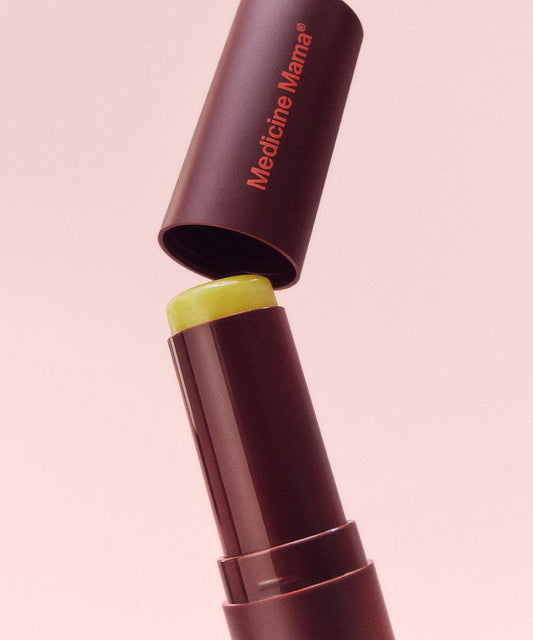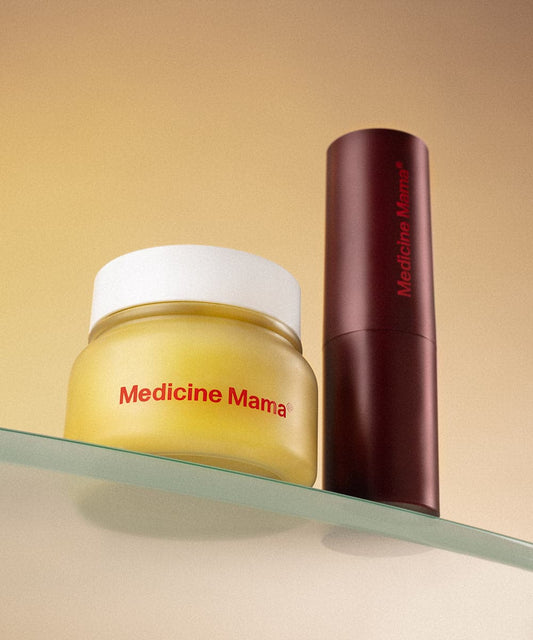
Reviewed by | Melinda (Melle) Hany, RN, ADN Registered Nurse
We hear it all the time: “Is it supposed to feel like this?” Vaginal dryness isn’t always obvious at first. It can sneak up slowly; maybe sex starts to feel a little off, maybe your skin feels more sensitive than it used to, or maybe you’re just uncomfortable and can’t quite explain why.
What makes it worse? Most people aren’t really talking about it. Or if they are, it’s vague, confusing, or buried under awkward euphemisms. So, let’s clear that up.
Here are the actual symptoms of vaginal dryness, what they can feel like in real life, and how to start feeling better.
1. That Dry, Tight, Stretched Feeling
This is often the first thing people notice, but it’s easy to brush off. It doesn’t always feel like “dryness” in the way you’d expect.
Instead, it might feel like your skin is too tight, like there’s a little internal pulling or tension that wasn’t there before. Some people describe it as a kind of friction when they move, even just walking around or sitting for too long. “It could be as simple as those yoga pants that used to be super comfortable to wear every day becoming suddenly uncomfortable,” notes Melinda Hany, Registered Nurse.
This happens because estrogen supports moisture and elasticity in the vaginal and vulvar tissue. When those levels drop, things dry out and the tissue becomes less flexible. That’s what causes the stretching or tugging sensation.
Fortunately, you don’t have to just deal with it. A daily, hormone-free vulva moisturizer like our VMAGIC® Vulva Balm can help restore comfort by hydrating and softening the skin. It’s made with organic, sensitive-skin-safe ingredients and no added fragrance, so you can use it as often as you need — morning, night, or whenever things feel not quite right.
2. Itching or Burning That Doesn’t Go Away
You’re not imagining it. Vaginal dryness doesn’t always show up the way people expect. Sometimes, it’s a lingering itch, a light burn, or that annoying sting that flares up when you least expect it. For many women, it’s worse after wiping, post-shower, or right before bed. It’s subtle until it’s suddenly not.
That’s because lower estrogen levels can make vulvar skin thinner, more delicate, and easier to irritate. Without enough moisture to protect it, your skin reacts more strongly to everyday things, like toilet paper, heat, sweat, or even your go-to underwear.
The good news? You can support that sensitive skin without making things worse. Skip anything fragranced or foamy, and stick with gentle, pH-balanced washes made specifically for the vulva. If the irritation keeps coming back, it might be time to make an appointment with your gynecologist; it could be dryness, but it’s always worth ruling out anything else.
3. Stinging When You Pee
That burning sensation when you pee? It’s easy to assume it’s a UTI, but if your tests keep coming back clear, dryness might be the real issue. When the skin around your urethra gets dry or irritated, even the gentlest stream of urine can sting like crazy.
You don’t have to wait it out. Upping your water intake can help dilute your urine, which makes peeing less intense when the skin is already sensitive. And if you're feeling raw or irritated throughout the day, having something you can swipe on quickly helps.
Our VMAGIC® Lips Stick is made with organic oils, beeswax, and our signature honey and propolis blend to support moisture exactly where you need it.
4. Pain or Discomfort During Sex
If sex feels more like friction than fun, dryness might be to blame. A drop in estrogen can leave vaginal tissue less lubricated and more prone to micro-tears, which can make penetration feel sharp, stinging, or just flat-out uncomfortable, even if you’re totally in the mood.
This isn’t something you need to push through, and it’s not “just part of getting older.” A good personal lubricant can make a big difference. Our Intimate Glide is water-based, made with organic aloe, and designed to support moisture without messing with your natural balance.
Note: If the pain is deeper, lasts after sex, or keeps happening no matter what you try, it’s worth checking in with your doctor. Sometimes, your body’s asking for a little more support, and that’s totally okay.
5. General Sensitivity or Irritation All Day Long
Sometimes, it’s not one big symptom but a low-level discomfort that’s hard to pin down. Everything feels a little off. Your leggings are annoying, certain fabrics feel scratchy, and even wiping can set things off.
It happens because when your skin is dry, it doesn’t have the same cushion it used to. Things that normally wouldn't register — heat, friction, pressure — start to feel way more intense.
If this sounds familiar, try scaling back anything that traps heat or rubs the same spot all day (like tight pants or shapewear). Swap steamy showers for warm ones, skip shaving for a bit, and give your skin time to chill. Sometimes, less really is more.
What Else Can You Do to Support Vaginal Health Every Day?
We’ve covered the symptoms of vaginal dryness and how to find relief, but what about the stuff you can do daily to keep things in a good place? You don’t need to wait for discomfort to strike.
These everyday habits can help support your vaginal health from the inside out.
Eat for Your Vaginal Microbiome
Your gut isn’t the only place with a microbiome — your vagina has one, too. And just like your digestive system, it thrives when you feed it the right stuff. A balanced vaginal microbiome helps maintain healthy pH levels and supports natural moisture, which can make you less prone to irritation.
So, what should you eat? Think fermented foods like plain yogurt, kefir, kimchi, and sauerkraut to support beneficial bacteria.
Add in leafy greens, berries, and omega-3-rich foods like flaxseed and salmon. Try to limit added sugars and highly processed snacks, which can mess with your balance more than you’d think. No need for a perfect diet — just aim for a few microbiome-friendly swaps throughout the week.
Move More, Stress Less
Exercise does more than support your heart or help you sleep. It also supports circulation, hormone balance, and pelvic floor function, all of which impact vaginal health. Moving your body regularly can help increase blood flow to the pelvic area, supporting the tissues that keep things feeling hydrated and resilient.
You don’t have to overthink it. Walking, stretching, yoga, or dancing in your kitchen all count. Pick something that doesn’t stress you out; this is about feeling better, not checking boxes.
Pro Tip: If you're breaking a sweat, try to rinse off soon after. “Plain, lukewarm water works fine here,” Hany says. Lingering sweat (especially in tight clothing) can irritate dry or sensitive skin.
Pay Attention to What’s Normal for You
Everyone’s body is different. What feels dry or uncomfortable for you might not even register for someone else, and that’s okay. Getting familiar with what’s normal for your body is one of the best ways to catch changes early and feel more in control of your health.
Notice how things usually feel: your discharge, your skin texture, what feels good, and what doesn’t. If something shifts — whether it’s sudden or slow — it’s worth noting. And if something keeps nagging at you, don’t second-guess bringing it up with your provider. You deserve to feel comfortable asking questions and getting answers that actually help.
Final Thoughts
At Medicine Mama, we believe your vulva deserves real care, not guesswork, shame, or silence. Vaginal dryness is common, but that doesn’t mean you have to just put up with it. Now that you know what to look for (and what to do about it), you’re one step closer to feeling like yourself again.
When you’re ready to support your skin with clean, expert-backed vulva care that actually works, we’re here. Explore our collection of hormone-free essentials made to comfort, soothe, and restore — because feeling good shouldn’t be complicated.
Sources:
Vaginal Atrophy: Causes, Symptoms, Diagnosis & Treatment | Cleveland Clinic
Experiencing Vaginal Dryness? Here's What You Need to Know. | ACOG
Vaginal Dryness: Common Causes and What You Can Do About It | University Hospitals
The Female Vaginal Microbiome in Health and Bacterial Vaginosis | PMC



